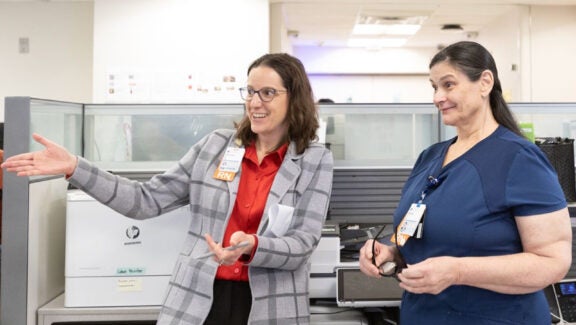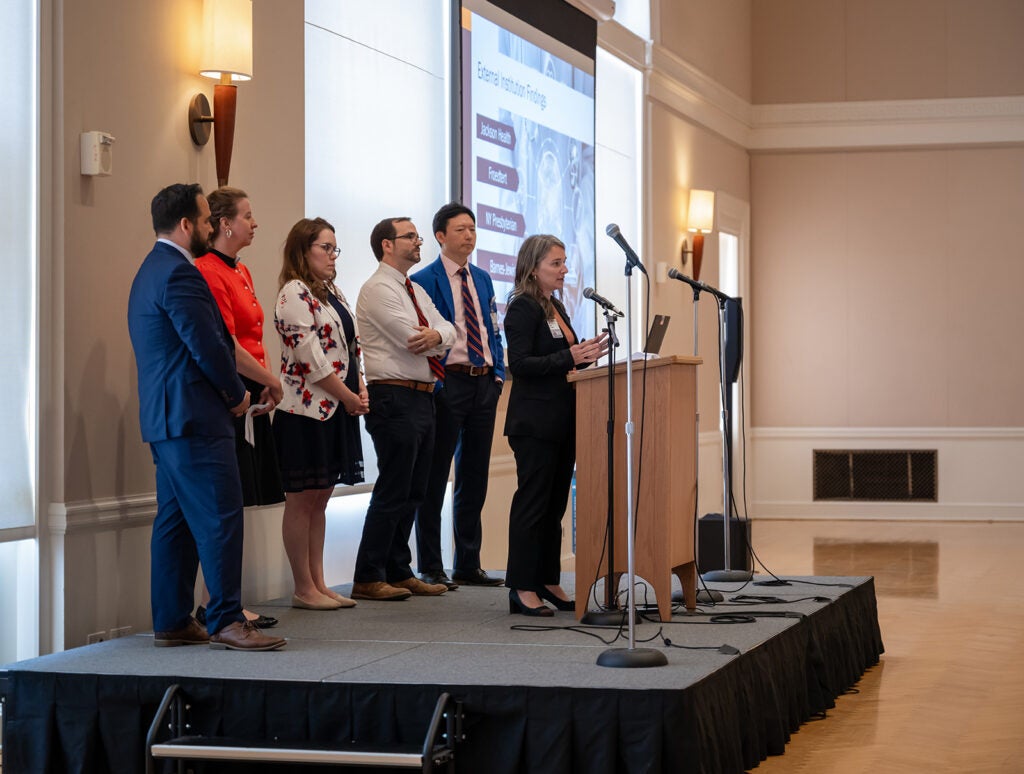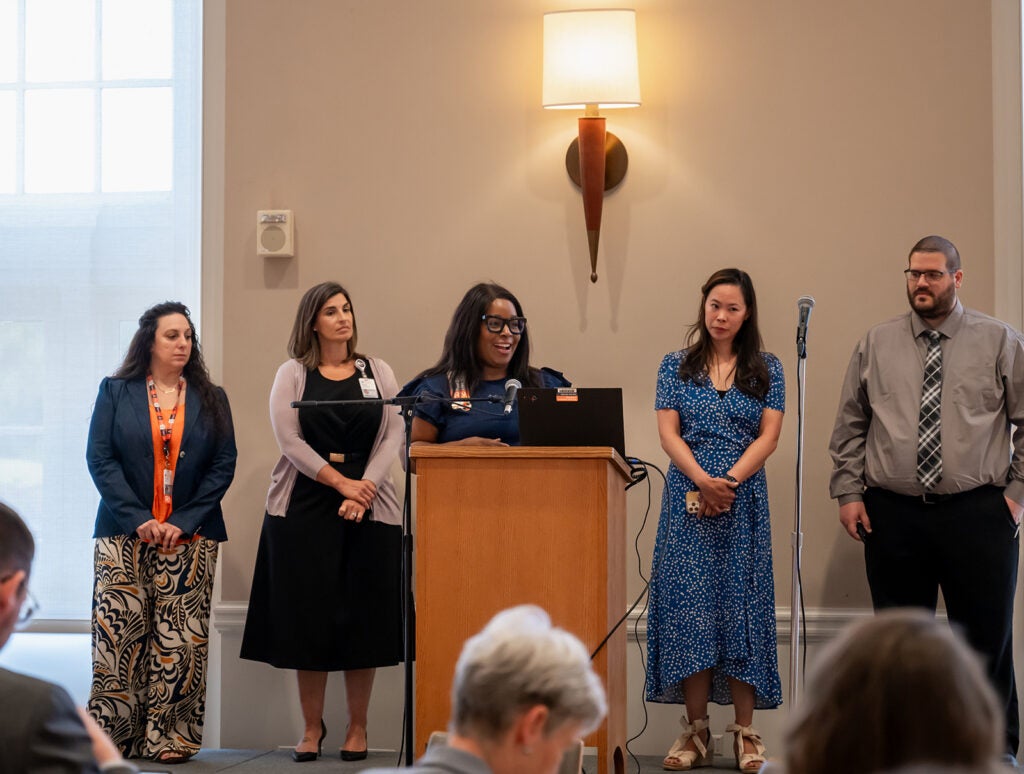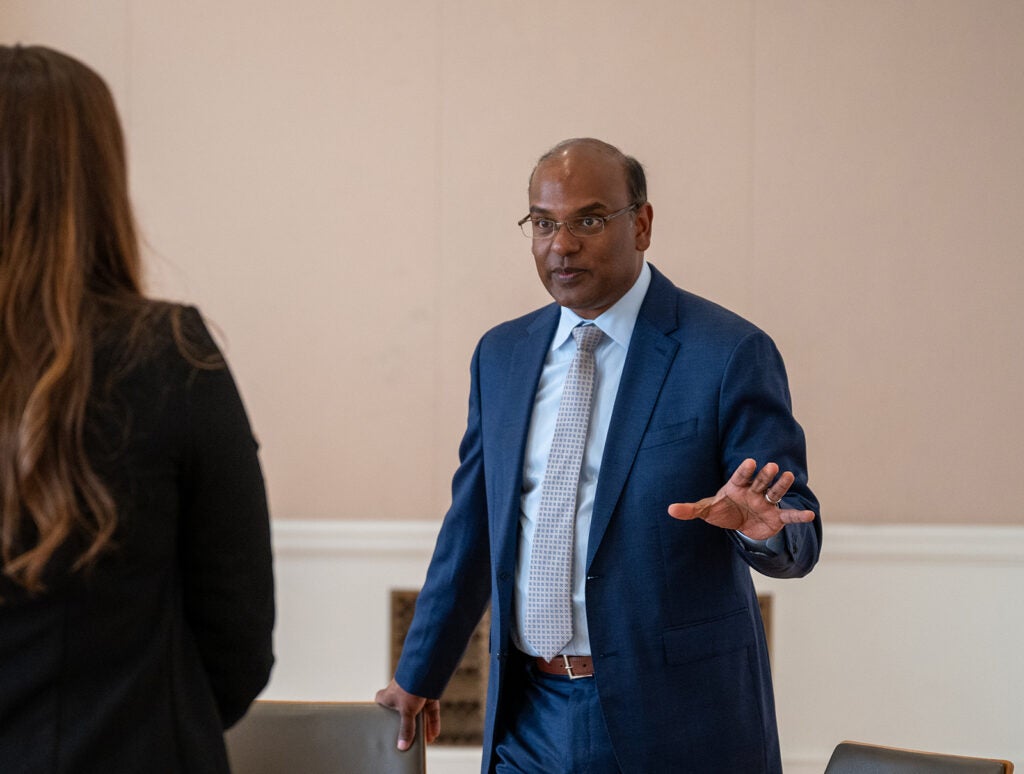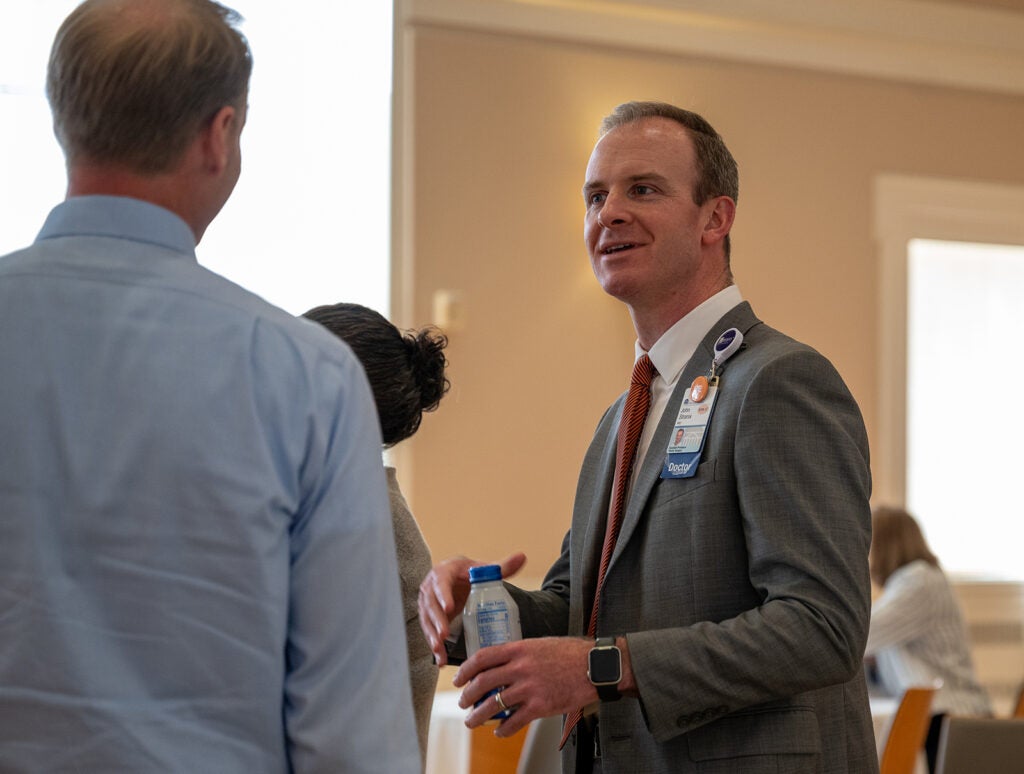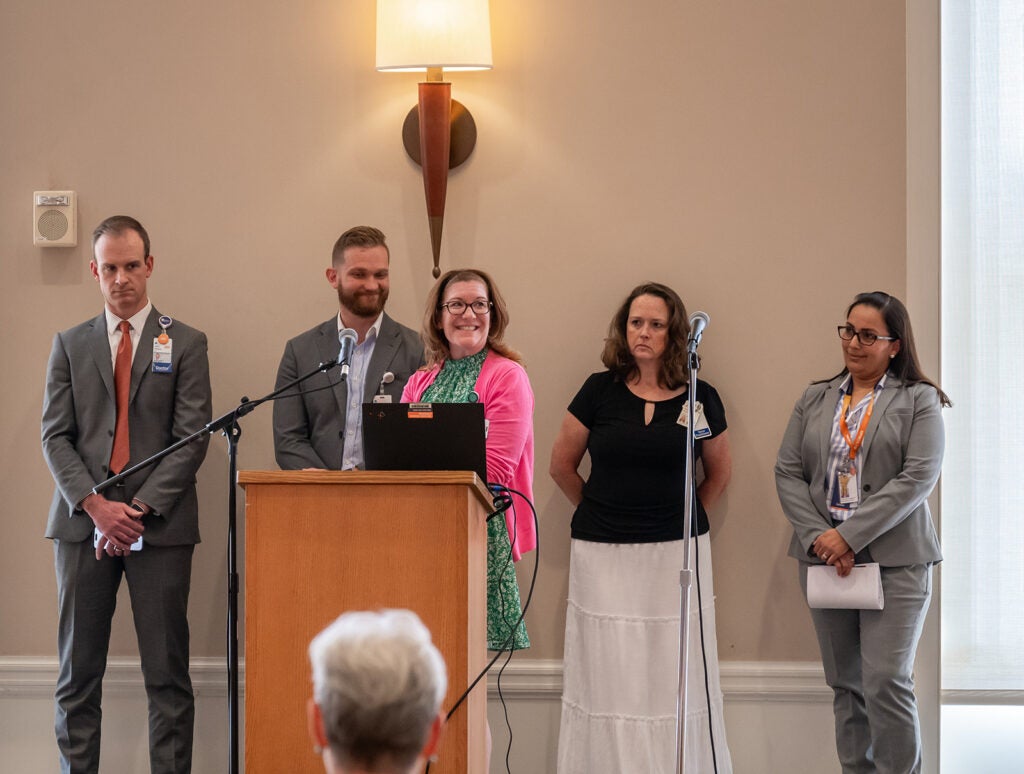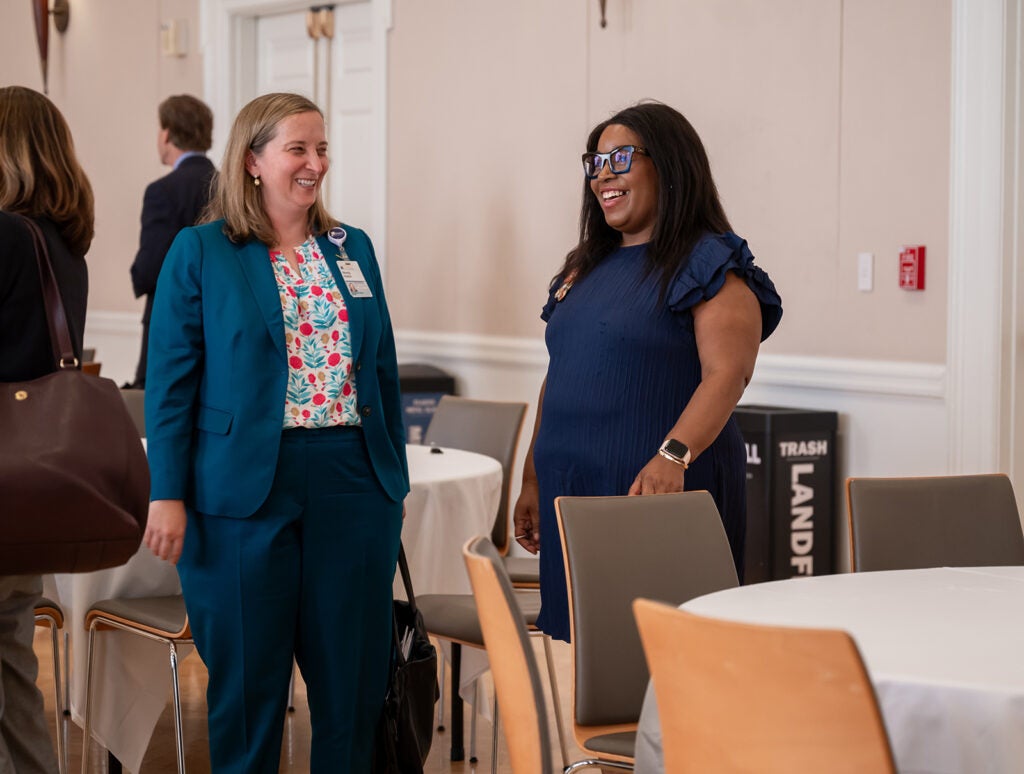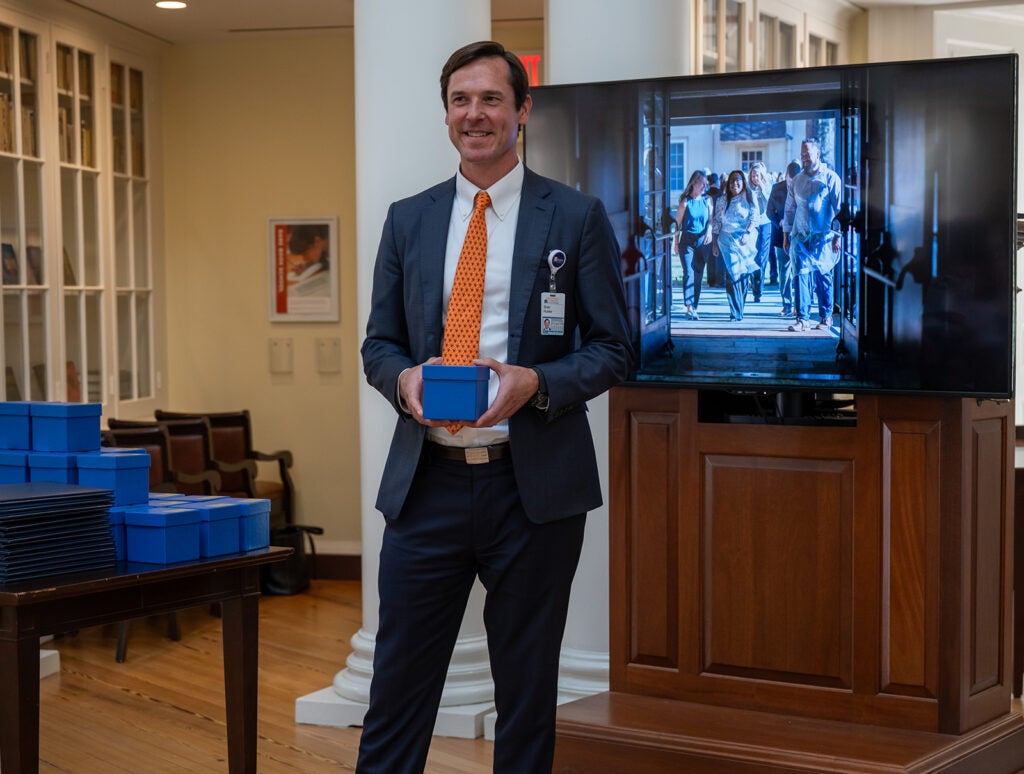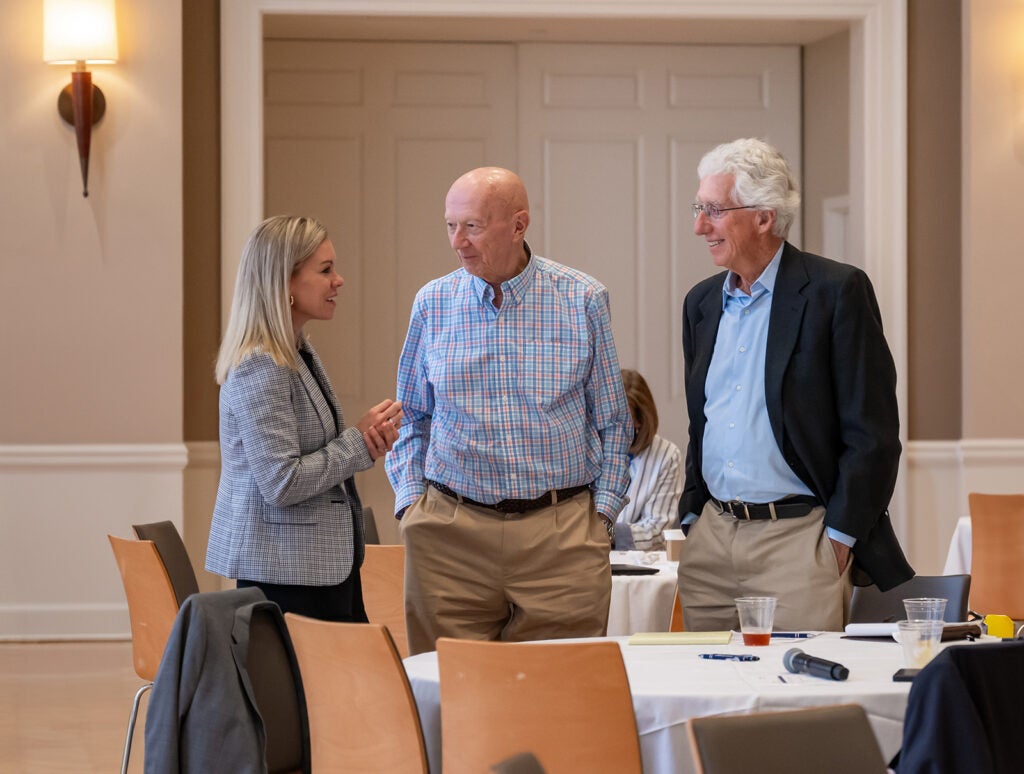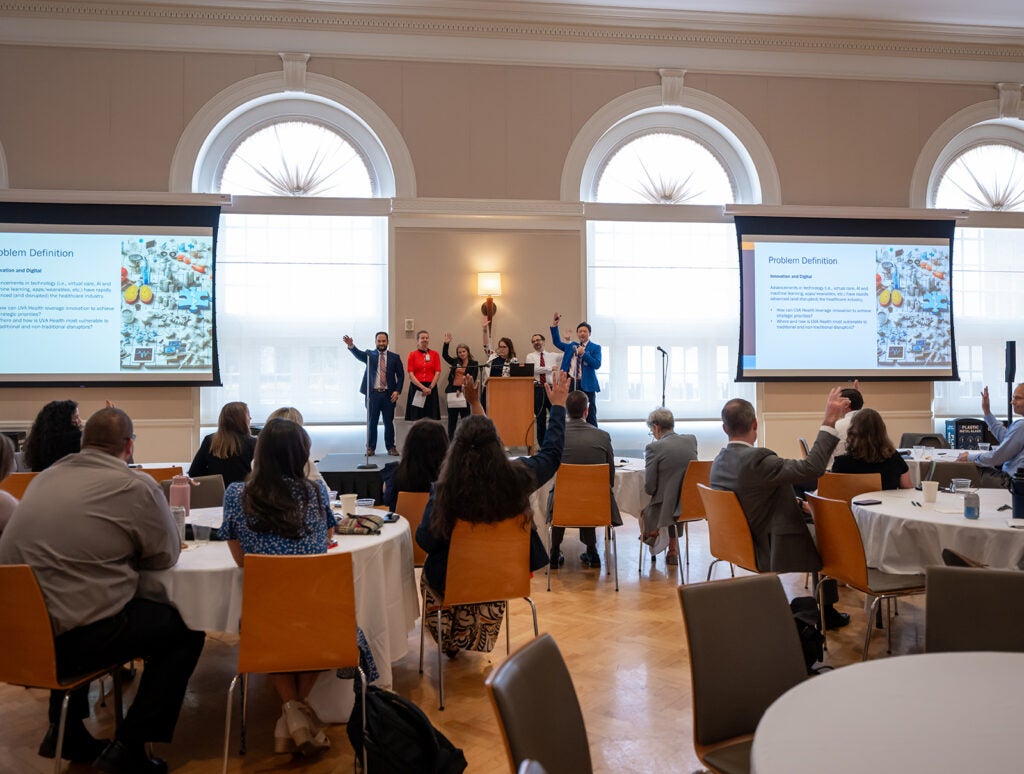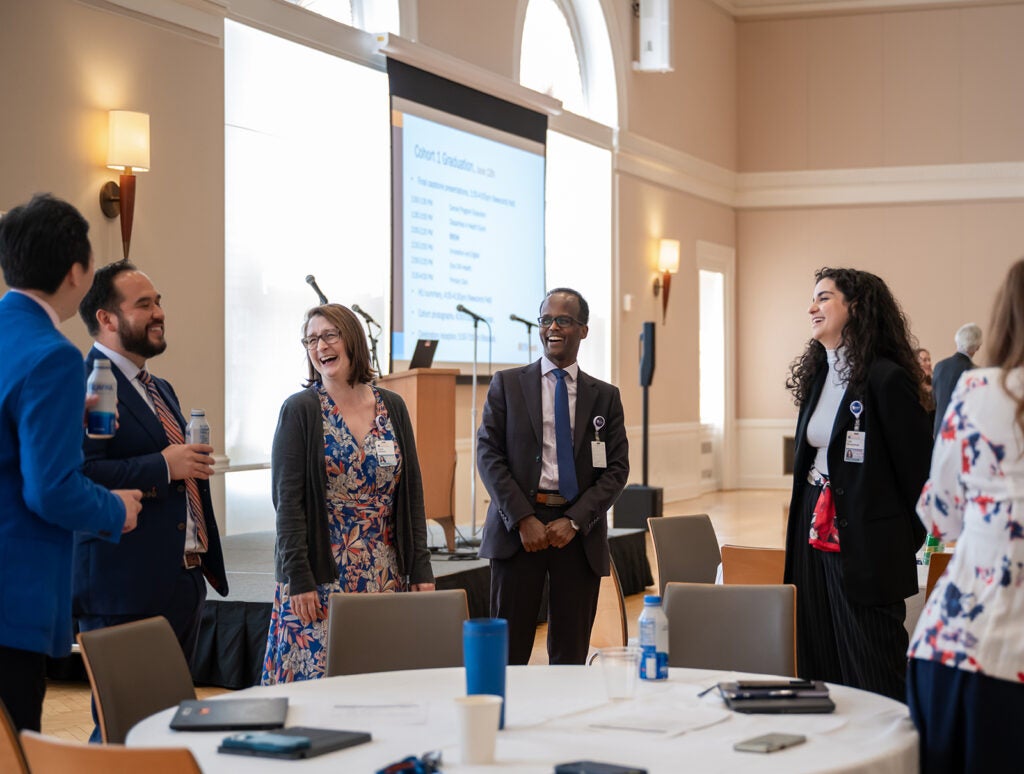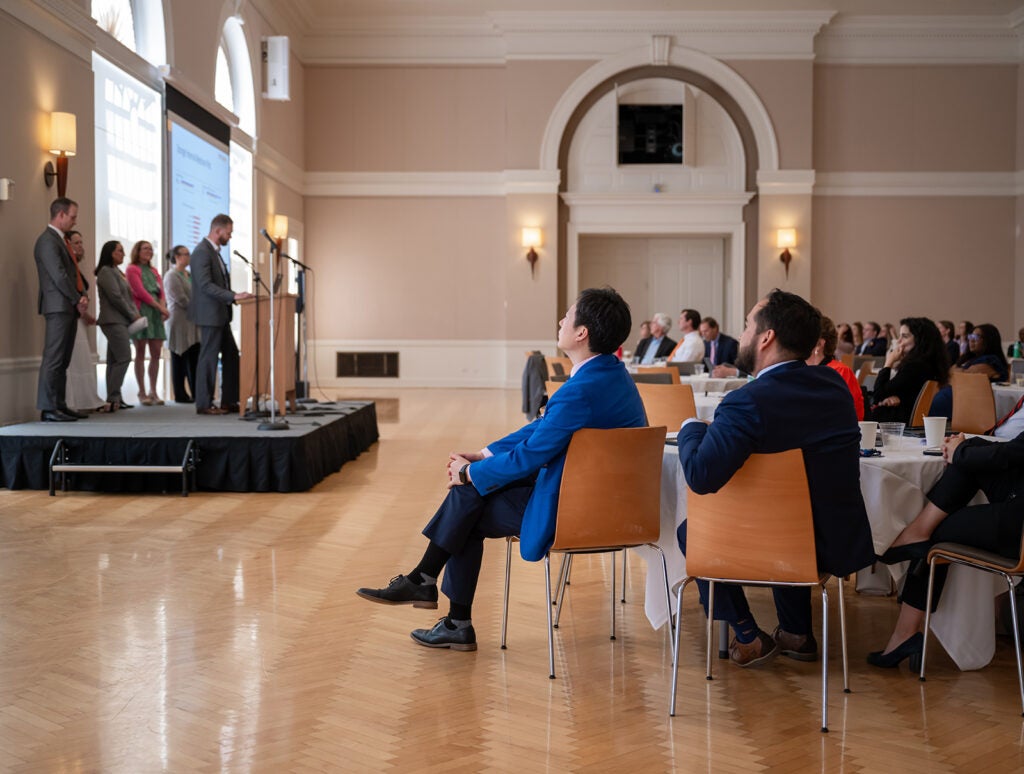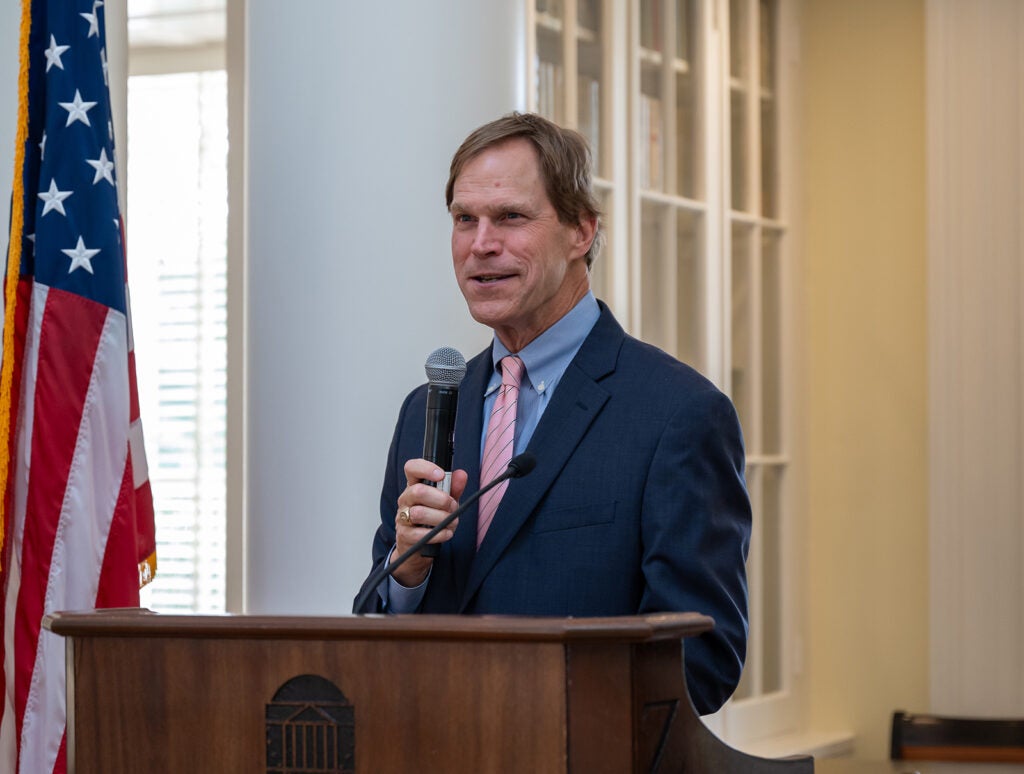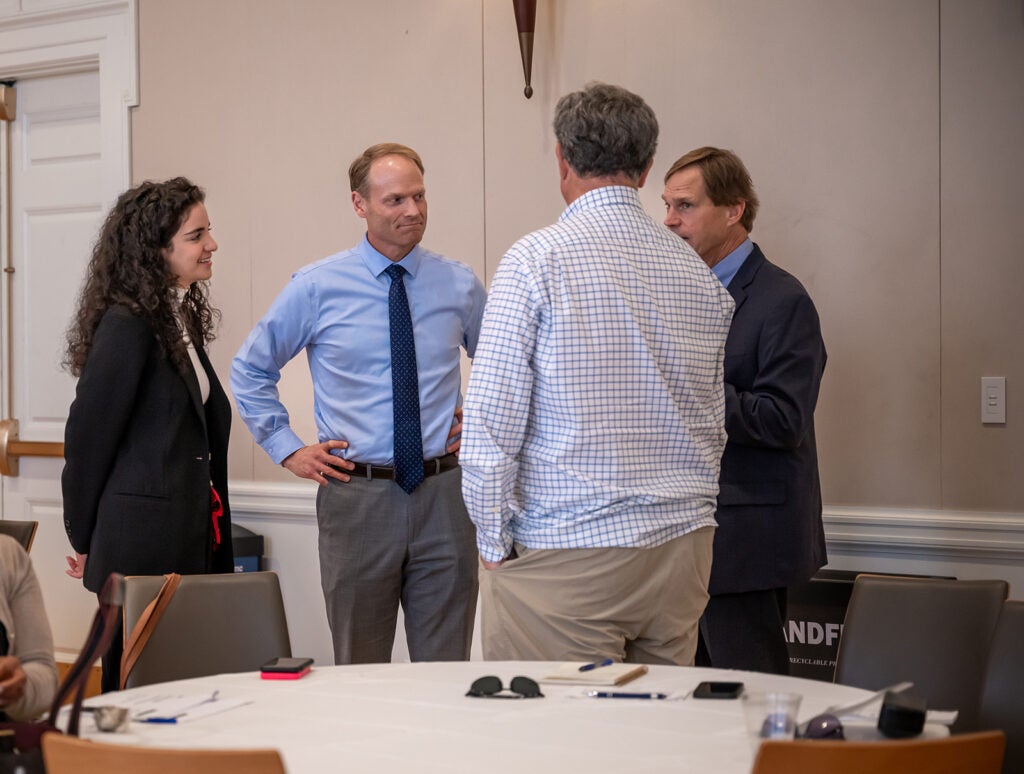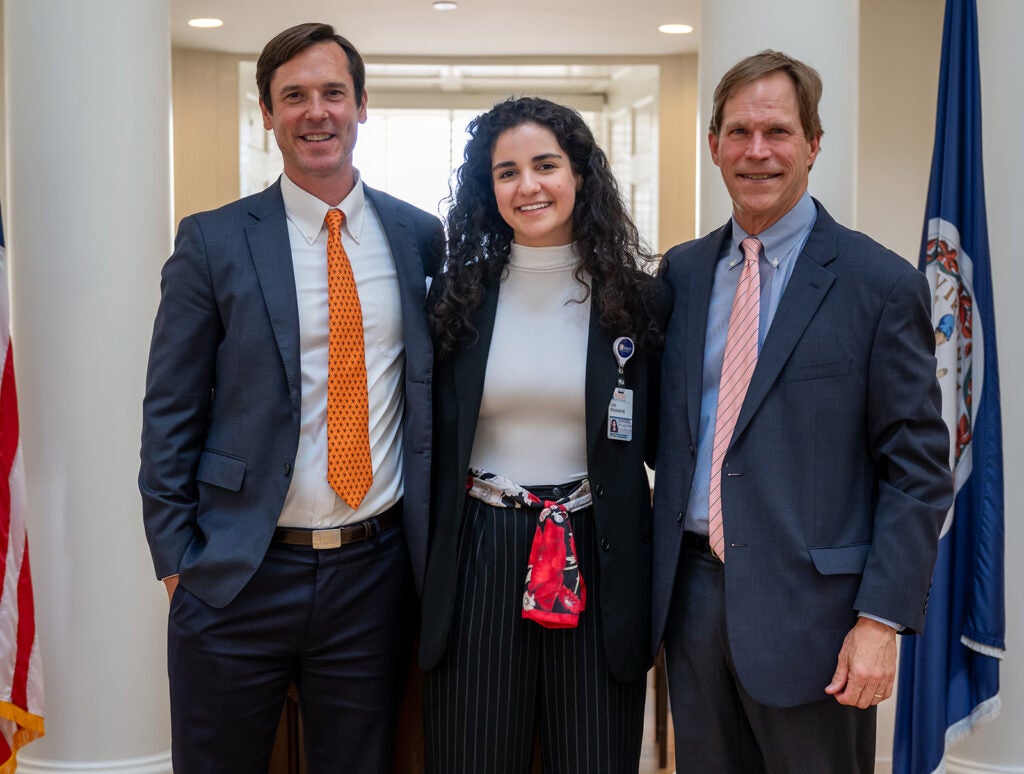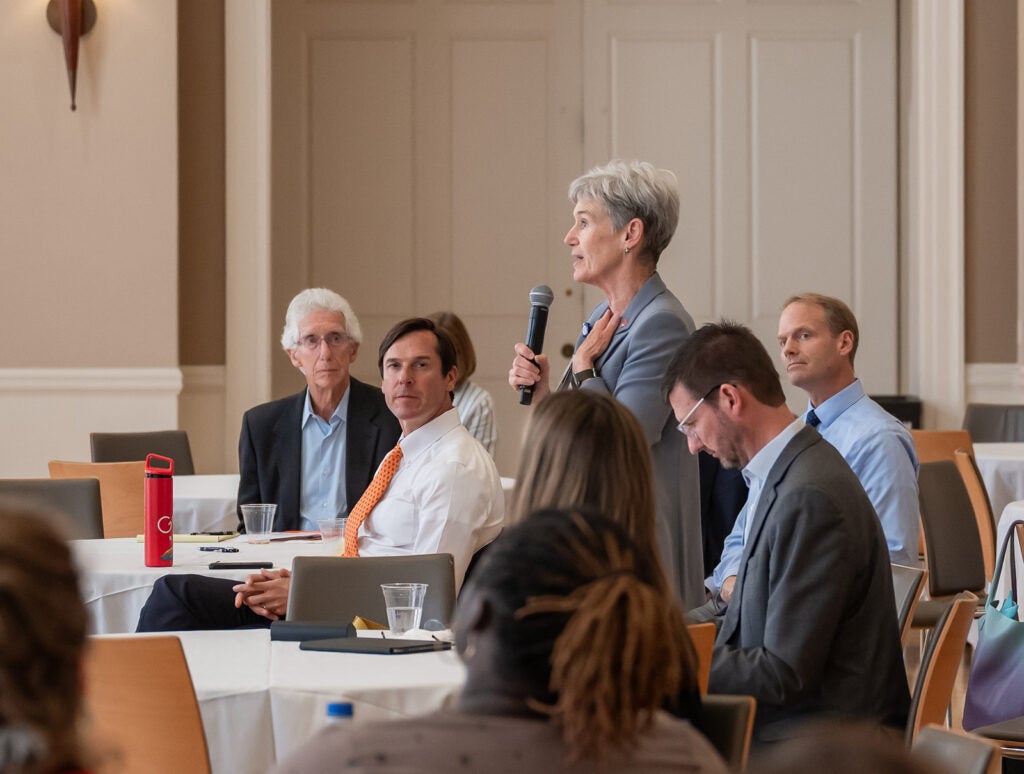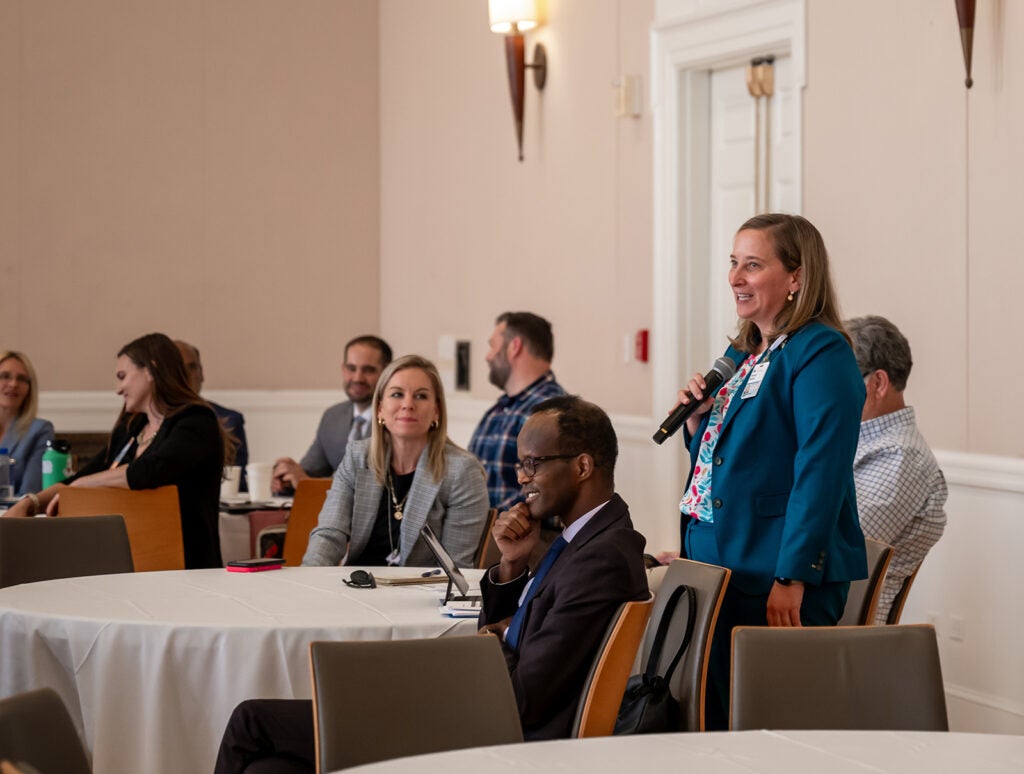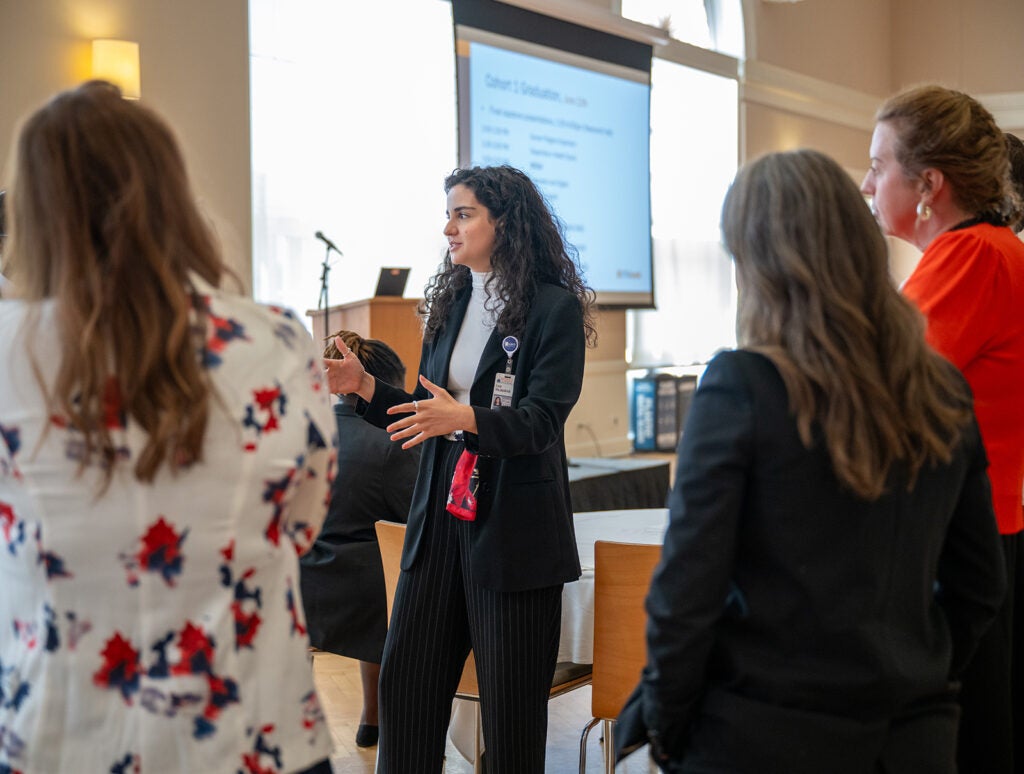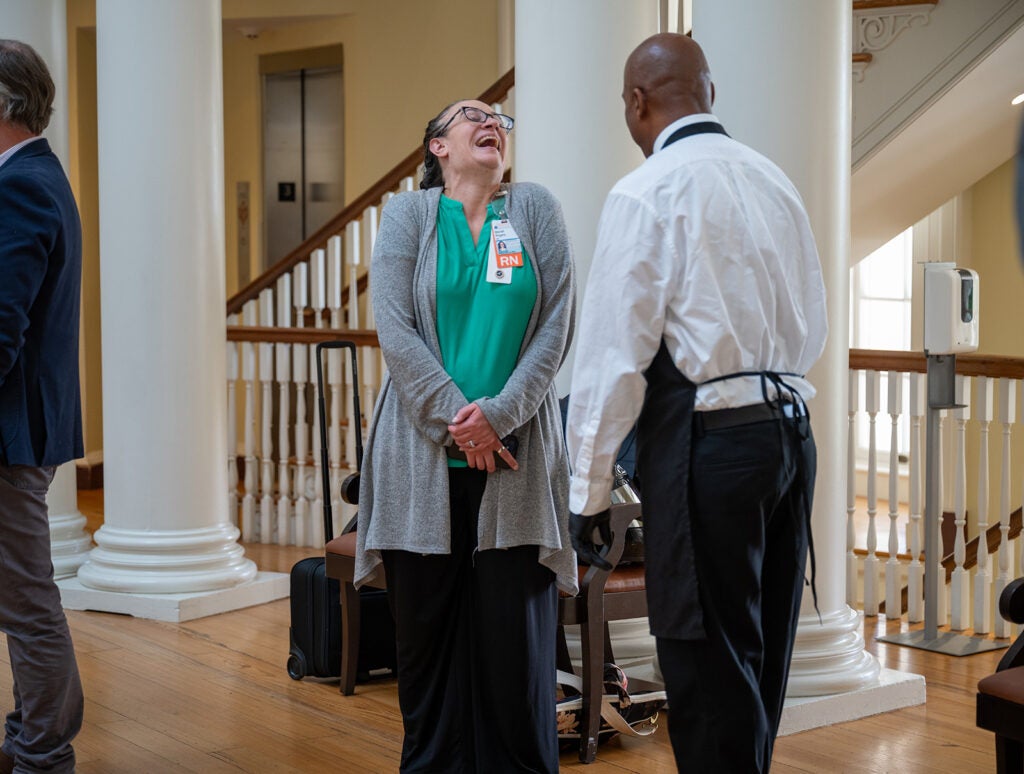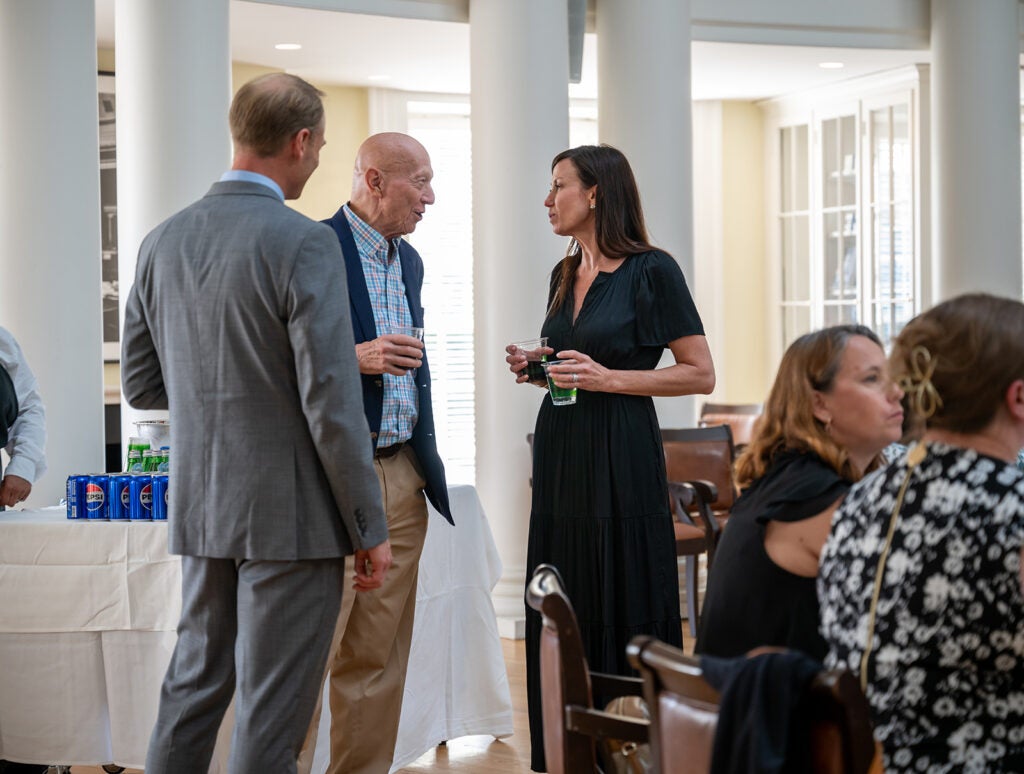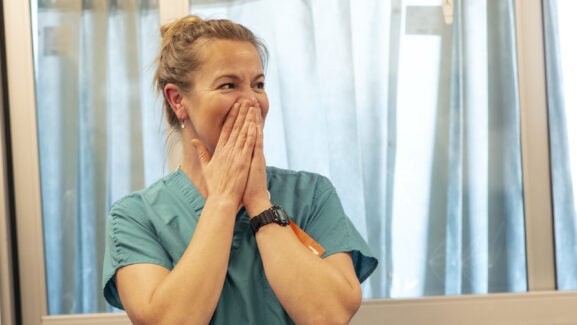
UVA Health Leadership Institute Inaugural Class Concludes With Capstones and Celebration
On June 12, 32 team members from across UVA Health gathered to celebrate the conclusion of their training in the first-ever cohort of the UVA Health Leadership Institute (HLI). Launched in July 2023, the institute’s mission is to provide leadership development opportunities for team members at different phases of their careers, from across all health system entities. The day centered on the presentation of five group capstone projects that covered topics central to the UVA Health 10-year strategic plan: expanding primary care, addressing disparities in health equity, fostering a unified “One UVA Health,” leveraging digital innovations, and expanding the cancer program. A celebratory reception in UVA’s historic Rotunda capped off the day and the months-long journey for HLI participants.
Below, Connect talks to a sampling of members from this inaugural cohort about their HLI experience and how they’ll bring their learnings to bear in their UVA Health careers and beyond.
Sara Fowler, PMP
Chief of Staff, Office of the Chief Operating Officer, University Medical Center
Capstone topic: Innovation and Digital
What is something you learned that surprised you?
Fowler: Over the past eight months, we've had the privilege of learning from exceptional speakers, with Dr. Valentine [Michael Valentine, MD, senior director of the Health Leadership Institute] often remarking, "this could be you." The HLI leadership team's unwavering belief in our potential and their active encouragement have been a surprising and inspiring aspect of this journey. This belief has not only motivated us but also empowered us to strive for the next step in our professional growth.
How do you see yourself applying what you’ve learned in your role at UVA Health?
Fowler: Many of the lessons from the speakers — especially those taught through case studies — have direct relevance to my role. One particularly impactful lesson was about how organizational structure influences employee retention, satisfaction, and business outcomes. In my new role as chief of staff to Min Lee [chief operating officer, University Medical Center], I am constantly applying this knowledge, considering how the organizational structure we create can impact our projects and opportunities, and ultimately, our success.
Tell us briefly about your capstone project and what key learnings you took from it.
Fowler: My group, now proudly known as the Digital Dreamweavers, embarked on a capstone project focused on digital innovation. We surveyed numerous external and internal stakeholders and vendors to explore how UVA Health can become a leader in innovation and digital enablement. A recurring theme was organizations' establishment of innovation centers to iteratively develop new strategies through various partnerships. With these research learnings as our foundation, we produced a final presentation and proposal that we are truly inspired by. Our multidisciplinary team's unique insights and perspectives have not only enriched our collaboration but also contributed to the success of our project.
Mesha Jones, MSN, RN
Manager, Ambulatory Float Pool
Earn While You Learn — Medical Assistant
Capstone topic: Disparities in Health Equity
What is the most important lesson you learned while participating in the Health Leadership Institute?
Jones: The most important lesson I learned while participating in the Health Leadership Institute was the significance of understanding my own personal values and how they align with the mission and values of the organization and within my team. This alignment is crucial for authentic leadership and ensures that my contributions are both meaningful and impactful. This lesson was made especially clear through interactions with the influential leaders who spoke to our group. They emphasized how staying true to their personal values and the mission and vision of their organizations helped them navigate difficult times and make tough decisions. Their experiences demonstrated that such alignment fosters resilience and clarity, enabling leaders to drive positive change even in challenging circumstances.
Tell us briefly about your capstone project and what key learnings you took from it.
Jones: My group's capstone project focused on disparities in health equity, specifically addressing maternal health disparities. Through this project, I learned that people have varying perspectives on what health disparities mean to them, highlighting the complexity and multifaceted nature of this issue. Additionally, I realized the critical need for more transparent and accessible data to better understand and address these disparities effectively. Despite the challenges, I was encouraged by the numerous initiatives and efforts already underway to promote health equity.
Who is a famous leader you admire and why?
Jones: Shirley Chisholm was the first African American woman elected to the United States Congress, representing New York's 12th congressional district from 1969 to 1983. She was a trailblazer in politics and an advocate for the rights of women and minorities. Chisholm was known for her dedication to her constituents and her efforts to improve the lives of those in her community. She worked tirelessly to address issues such as education, employment, and health care, and she was a strong voice for social justice and equality. In addition to her legislative work, Chisholm was also a founding member of the Congressional Black Caucus and the National Women's Political Caucus, further amplifying her impact on both her community and the nation.
Arun Krishnaraj, MD, MPH
Professor of Radiology and Medical Imaging
Capstone topic: One UVA Health
What is the most important lesson you learned while participating in the Health Leadership Institute?
Krishnaraj: While it may be a hackneyed expression to say that “healthcare is a team sport,” this was made readily apparent through all the exercises and workshops we participated in. My capstone group was composed of healthcare providers from across the continuum of care at UVA Health and each brought a unique perspective to our conversations. I learned a great deal from all of them and it will influence how I lead our diverse healthcare teams going forward.
How do you see yourself applying what you’ve learned in your role at UVA Health?
Krishnaraj: There are almost too many lessons to list, but I was particularly intrigued by Darden Professor Lillian Ellis’ case study on organizational design. As she notes, “you get the organization that you design,” so you must be purposeful in designing organizations to achieve the results you seek. As our health system expands, I will work more diligently to ensure that what we design for our medical center can scale to a health system level. In fact, I was so influenced by the Darden professors I had the privilege of interacting with that I have enrolled in the Darden Executive MBA program to commence this fall.
Who is a famous leader you admire and why?
Krishnaraj: I have always greatly admired Dean Smith, the legendary basketball coach of my alma mater, the University of North Carolina-Chapel Hill (sorry Wahoo fans!). Coach Smith instilled in his teams, as well as the university at large, the concept of “The Carolina Way.” It is the guiding principles of selflessness: play hard, play smart, and play together. In an era of seismic change in healthcare, Coach Smith’s sage advice would benefit all our healthcare teams as we strive forward against the many headwinds we face.
JT Stranix, MD
Assistant Professor of Plastics Surgery and Medical Director, Plastic Surgery Clinics
Capstone topic: The Primary Care Crisis
What is the most important lesson you learned while participating in the Health Leadership Institute?
Stranix: I learned about my personal leadership style and identified areas of strengths and weaknesses. I have a clearer picture of what kind of leader I want to be and how I can use my capabilities to contribute on a higher level to my team and the health system. Ultimately these insights will translate to better care for my patients, which is always my primary motivation.
How do you see yourself applying what you’ve learned in your role at UVA Health?
Stranix: As medical director of our plastic surgery clinics, I have already applied numerous lessons from this program to handling challenging conversations, hiring new personnel, and optimizing our clinic workflows, while also striving to foster a team-based culture committed to excellence. As our Plastic Surgery Department continues to grow, I will be better equipped to serve in my role as director of operations to facilitate expansion and improve patient care delivery. I am wholeheartedly committed to UVA Health, and I also hope to have the opportunity to contribute to the health system on a higher level in a more formal leadership role.
Tell us briefly about your capstone project and what key learnings you took from it.
Stranix: Our group was tasked with improving access to primary care in the state of Virginia. All seven team members served in different roles in the health system and brought very diverse perspectives and experiences to the project. Through inclusive, open dialogue and extensive internal and external research, we identified areas of inefficiency within the current system and were able to hone our project plan. We ultimately focused on a pilot project to provide pharmacy resources for patients with diabetes and hypertension to offload primary care provider (PCP) time spent on medication management. This would provide patients with a dedicated pharmacist to manage their medications and free up time for PCPs to see additional patients.
Jamie Weisenborn, RN, BSN
Assistant Nurse Manager, Surgical Services, Prince William Medical Center
Capstone topic: The Primary Care Crisis
What is the most important lesson you learned while participating in the Health Leadership Institute?
Weisenborn: I think the most important thing I learned while participating in the Health Leadership Institute was that clear communication is the foundation for good leadership. It is important to understand what your team needs, and how to help facilitate the creation of a cohesive team.
What is something you learned that surprised you?
Weisenborn: I think what surprised me the most was being able to meet people in this cohort from all walks of UVA Health life. This cohort had representation from University Medical Center, UPG, UVA Community Health, as well as the Schools of Medicine and Nursing, which made for interesting conversation and unique perspectives during each session.
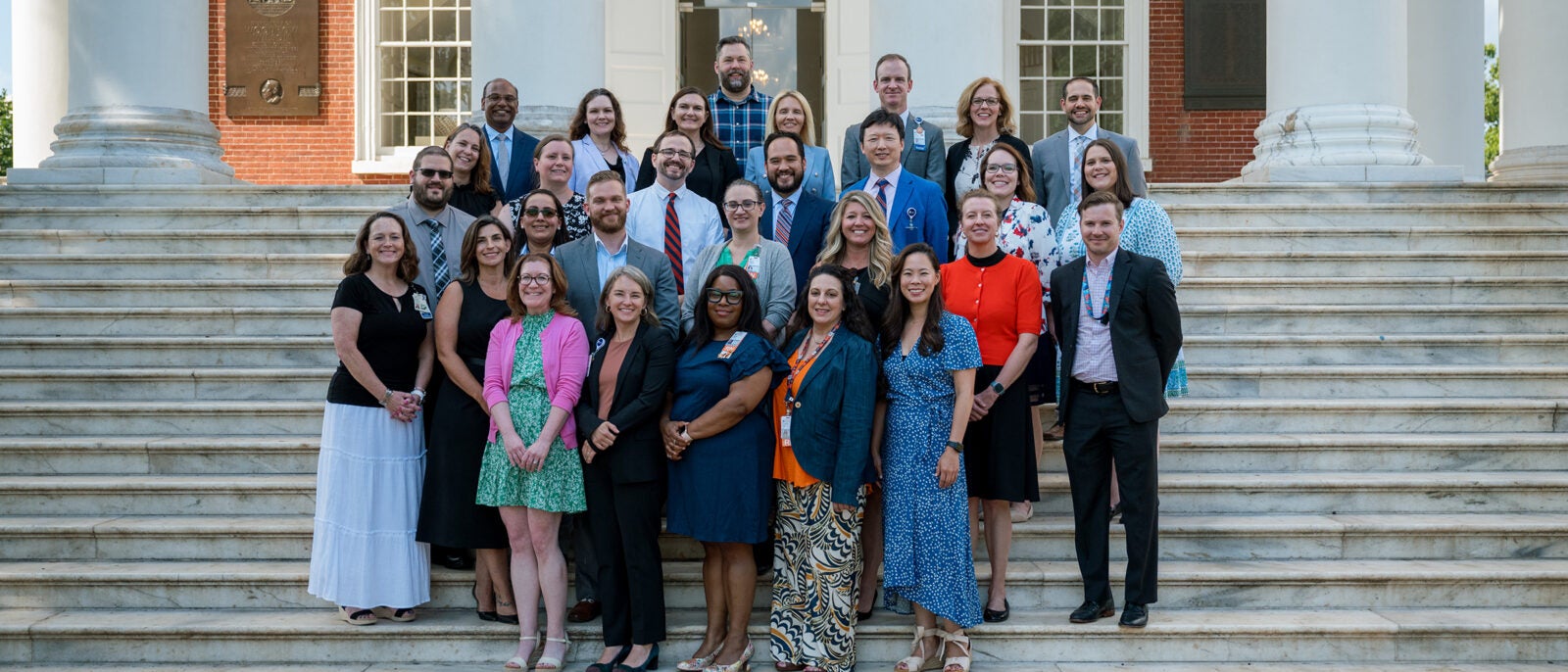
Latest News


